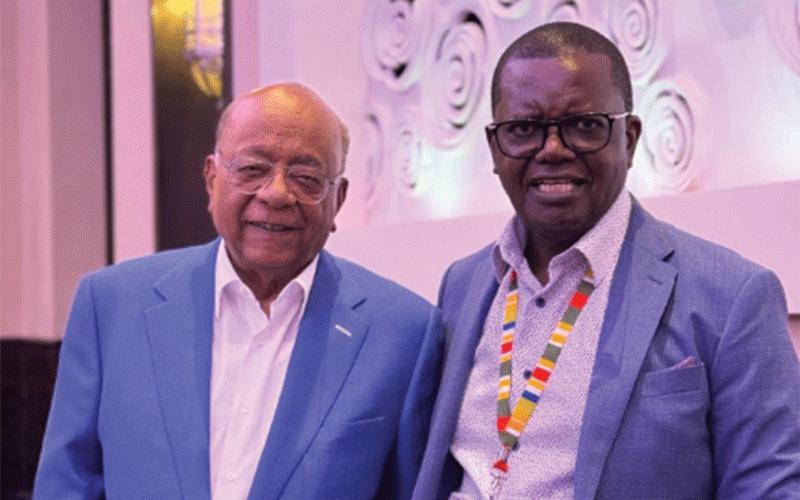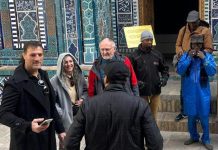Africa-Press – Zimbabwe. LAST week in Marrakech, I met with Africans determined to move the continent forward — and returned to the office energised. Hope is never a strategy, but without hope, there is no strategy to talk about.
The highlight was being among fired-up young Africans, many of them Tutu Fellows. This is a different breed — entrepreneurs changing Africa through innovative businesses and ideas. Their energy was infectious.
The statistics from the Mo Ibrahim Governance Weekend paint a harsh picture of Africa’s predicament. Sub-Saharan Africa has the largest number of economies below the minimum desirable tax-to-GDP ratio of 15%, where revenues can’t finance basic State functions. Meanwhile, the African Union’s budget depends heavily on external financing. This is patronage dressed as partnership.
Our connectivity crisis exemplifies deeper structural problems. Most attendees took over 10 hours to reach Marrakech — some over 23 hours via Paris and Doha. While Asia connects seamlessly and Europe moves as one economic bloc, Africa remains fractured by colonial-inspired infrastructure and bureaucratic barriers. This isn’t an inconvenience — it’s economic haemorrhaging.
Africa’s tax-to-GDP ratio averages 16,5%, far below the 25% target needed for sustainable development. For instance, only 3,5 million Kenyans carry their nation’s tax burden while millions in the informal economy remain outside the fiscal system. African governments run enterprises they shouldn’t — power plants, telecommunications, mining — while lacking the capital market depth for sustainable growth.
Most damaging are illicit financial flows. Building on Thabo Mbeki’s ground-breaking work, Africa loses over US$100 billion annually to corruption and resource theft — equivalent to all aid and direct investment combined. When coup leader, Ibrahim Traore of Burkina Faso, emerges as Africa’s most popular leader at 37, despite Russian social media manipulation concerns, it signals that traditional governance models aren’t delivering.
We’ve allowed ourselves to become participants in a global order designed to extract our resources while denying us value addition. The theory of comparative advantage has locked us into perpetual raw material export.
Our political leadership divides into rent-seekers and genuine reformers, with the former tragically outnumbering the latter. We lack visionary Pan-Africanist leaders like Mbeki who could drive continental integration. Instead, African countries compete destructively, offering tax incentives to attract the same investors, while our collective bargaining power dissipates.
The African Continental Free Trade Area (AfCFTA) moves at a glacial pace while global supply chains reshape around us.
We watch Indonesia mandate local processing of its minerals while African nations export raw materials under exploitative agreements.
Most shamefully, we’ve internalised the aid mentality so deeply that when Western assistance declines — as Europe redirects €7,4 billion from African development to Ukrainian military support — we panic instead of celebrating liberation from conditional charity.
Yet Morocco’s achievement of 38% renewable energy capacity demonstrates what focused leadership can accomplish. The country produces 50 000 electric vehicles annually, with plans to reach 100 000.
The demographic dividend cannot be overstated. With 375 million youth entering the job market by 2030, Africa possesses human capital for unprecedented transformation — if we create the right conditions. The Tutu Fellows I met embody this potential.
South-South trade offers genuine alternatives to traditional dependency. China-Africa trade flows evolve while intra-African trade grows under AfCFTA frameworks, coming without governance conditionalities that historically constrained African sovereignty.
The technology revolution levels the playing field in unprecedented ways. Digital financial systems, mobile money and e-governance platforms allow leapfrogging infrastructure deficits. Rwanda’s rise from 67th to 38th position in World Bank business rankings demonstrates how digital transformation accelerates development.
Most importantly, declining Western multilateral dominance creates space for African institutional leadership. With Brics (Brazil, Russia, India, China and South Africa)representing over 40% of the global population, Africa gains genuine alternatives to Western-controlled development finance. African institutional investors hold US$1,1 trillion in capital, with US$455 billion in pension funds that could finance continental development instead of seeking returns abroad.
This crisis of Western institutional failure presents Africa with a once-in-a-generation opportunity to chart an independent path. But this requires fundamental shifts:
First, aggressively implement AfCFTA provisions, creating genuine continental markets. Harmonise standards, recognise qualifications across borders, eliminate trade barriers that cost our entrepreneurs more than external tariffs.
Second, make domestic resource mobilisation our primary development finance strategy. Broaden tax bases beyond formal employees, improve collection through digital systems, eliminate illicit flows. Follow Indonesia’s example — mandate local processing and eliminate competitive tax incentives benefiting foreign investors at taxpayers’ expense.
Third, develop deep capital markets allowing African savings to finance African development. The US$130 billion in sovereign wealth funds, properly managed, could anchor continental infrastructure investments.
Fourth, realise that aid is finished. The COVID vaccine scandal made this obvious. Western voters have decided against aid to developing economies. This crisis presents opportunities for Africa with its young population and critical minerals. It’s time for Africans to be intentional and strategic in their relationships with China, the US and Europe.
Fifth, at US$90,8 billion annually, remittance inflows roughly equal Africa’s estimated development needs. The continent must incentivise better flows and direct them to strategic investments, not just social spending.
Lastly, African leadership must adopt ubuntu in international relations — engaging all global powers based on how effectively they serve African development interests, rather than geopolitical alignment. This means leveraging on our critical minerals for the global green transition while ensuring that beneficiation occurs on African soil.
The choice is stark: continue managing decline from a collapsing Western-dominated order or seize this moment of global transition to build the Africa we want —economically integrated, technologically advanced, politically sovereign.
The young Africans I met won’t accept limitations that previous generations took for granted. They see opportunity where others see crisis, solutions where others see problems. They embody the African renaissance that begins not with foreign validation but with African determination.
This is our moment. Africa must not waste this crisis.
For More News And Analysis About Zimbabwe Follow Africa-Press






